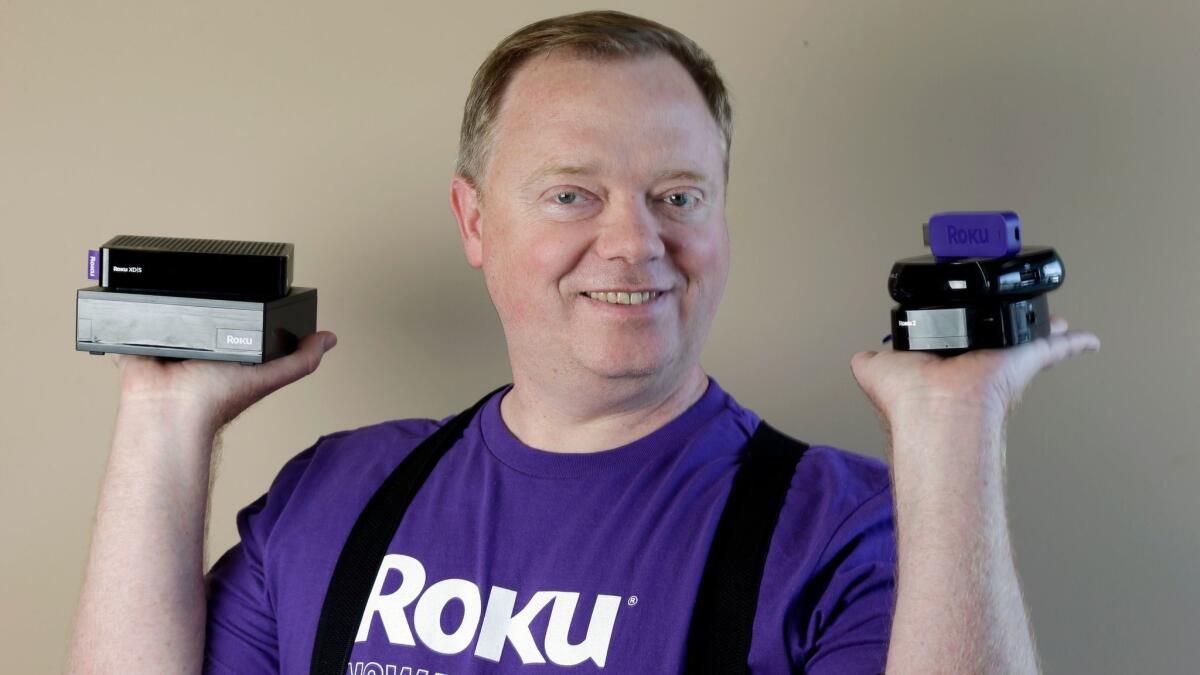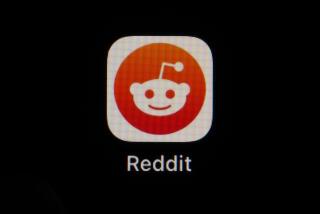Video streaming pioneer Roku aims to raise up to $252 million with IPO

Roku Inc., the leading maker of devices for streaming Internet video on televisions, hopes to raise up to $252 million with an initial public stock offering.
The Los Gatos, Calif., company’s IPO registration filing Monday came the day after the growing popularity of streaming video platforms such as Netflix was evident at the Emmy Awards, where series exclusive to the platforms captured numerous awards.
In its filing, Roku said it planned to offer about 18 million Class A shares for $12 to $14 each. The stock would have inferior voting rights compared with the stock currently held by Roku’s insiders.
Founded in 2002, Roku has maintained its lead in the U.S. market for the small boxes that stream Internet content despite competition from larger companies such as Apple Inc., Amazon.com Inc. and the Google unit of Alphabet Inc. Roku, with 15.1 million active accounts, had a 37% share of the streaming-player market in the first quarter of this year, according to the research firm Park Associates.
All are benefiting in good part from “cord cutting,” the trend in which viewers are shifting from conventional cable services to streaming Internet video programs from such providers as Netflix, Hulu and Amazon.
Despite its revenue growth, Roku has yet to turn a profit. And it said in its filing that it expected “to incur significant losses in the future” as it continues spending to facilitate its growth.
Roku has amassed $244 million in losses since its start, including a $24.2-million loss in the first six months of this year.
The company’s revenue totaled $398.6 million in 2016. In the first six months of this year, revenue was just under $200 million, a 23% jump compared with the first six months of 2016. The largest component of that revenue was sales of Roku’s streaming devices. But its fastest-growing segment is revenue from selling advertising and other services available on those devices.
Anthony Wood, Roku’s founder and chief executive, currently owns 28.4% of the company. Venture capital firm Menlo Ventures is the largest shareholder, with a 35.3% stake, according to the filing.
Under Roku’s proposed dual-class stock structure, owners of its newly issued Class A shares would have one vote per share, while holders of its existing Class B stock — such as Wood and Menlo Ventures — would have 10 votes per share and effectively maintain voting control.
That apparently would make Roku’s stock ineligible to be part of the benchmark S&P 500 index and S&P’s MidCap 400 and SmallCap 600 indexes. Last month, S&P Global issued new rules for the indexes that bar companies with multiple classes of stock with unequal voting rights.
Roku’s planned IPO follows troubled initial offerings by some other loss-ridden companies this year.
The stock of Snapchat maker Snap Inc., which went public at $17 a share in March, was trading midday Monday at $14.87. Blue Apron Holdings Inc., which sends customers a weekly box of recipes and accompanying ingredients, went public at $10 a share in June but traded at $5.70 a share Monday.
The streaming trend is not only altering how viewers consume TV, it’s also making a much bigger mark in original programming, as the Emmy Awards showed.
Hulu’s “The Handmaid’s Tale” became the first streaming-only program to win the Emmy for drama series, and the show’s Elisabeth Moss won for leading actress in a drama. The show won five Emmys overall. Netflix’s anthology series “Black Mirror: San Junipero” won the award for TV movie.
Overall, shows from online platforms had 162 Emmy nominations this year, more than triple their 51 nominations two years ago.
UPDATES:
1:40 p.m.: This article was updated throughout with Times staff reporting, including details about the IPO, streaming programs and Emmy Awards.
This article was originally published at 6:30 a.m.







